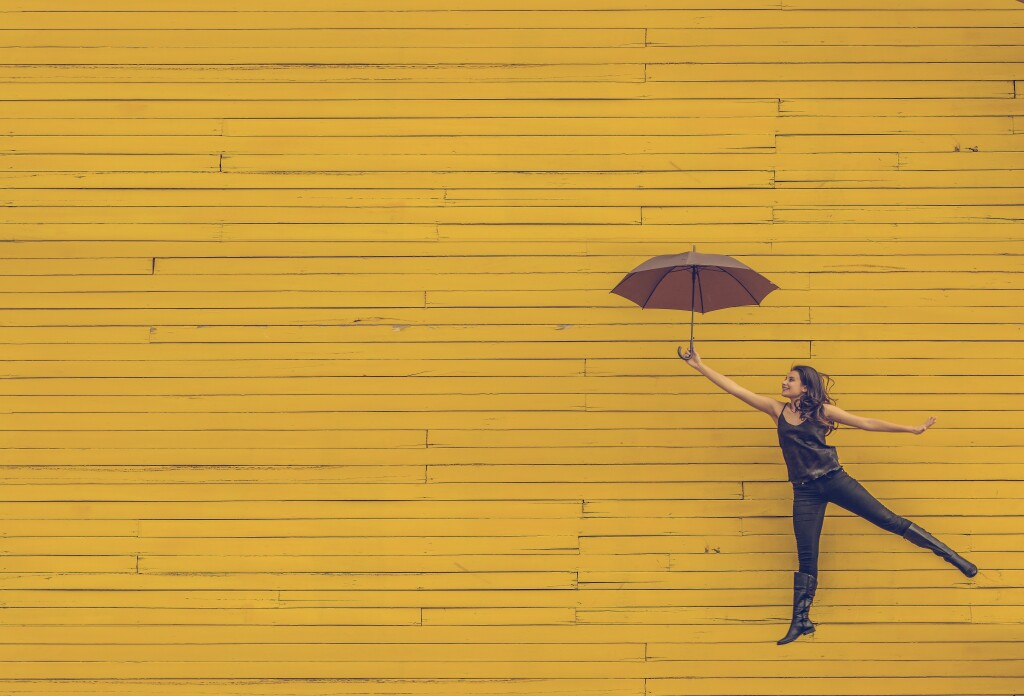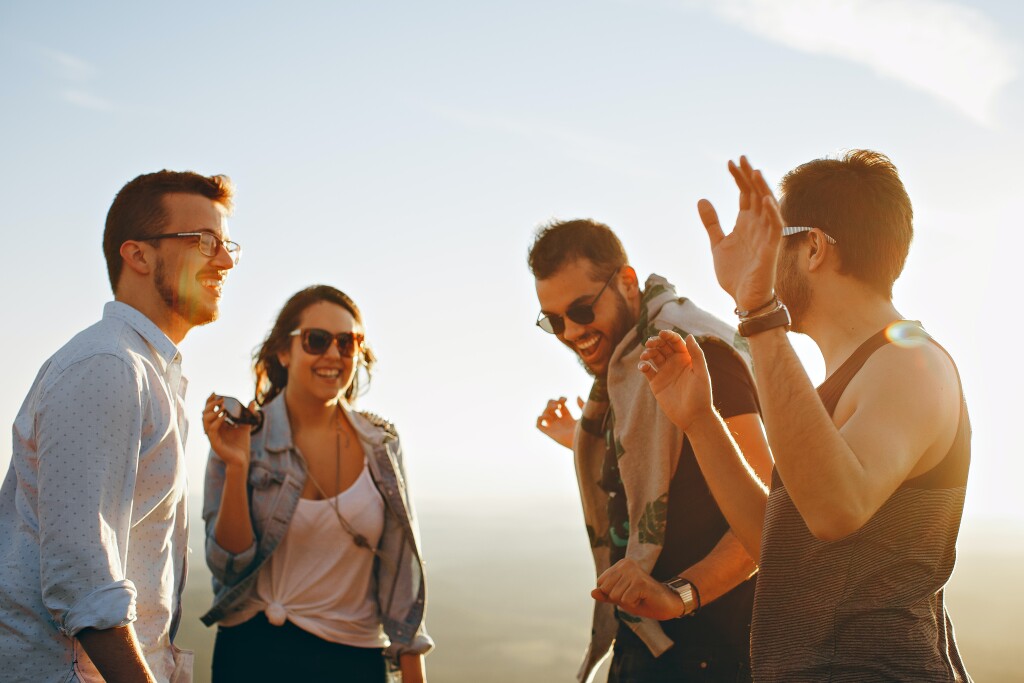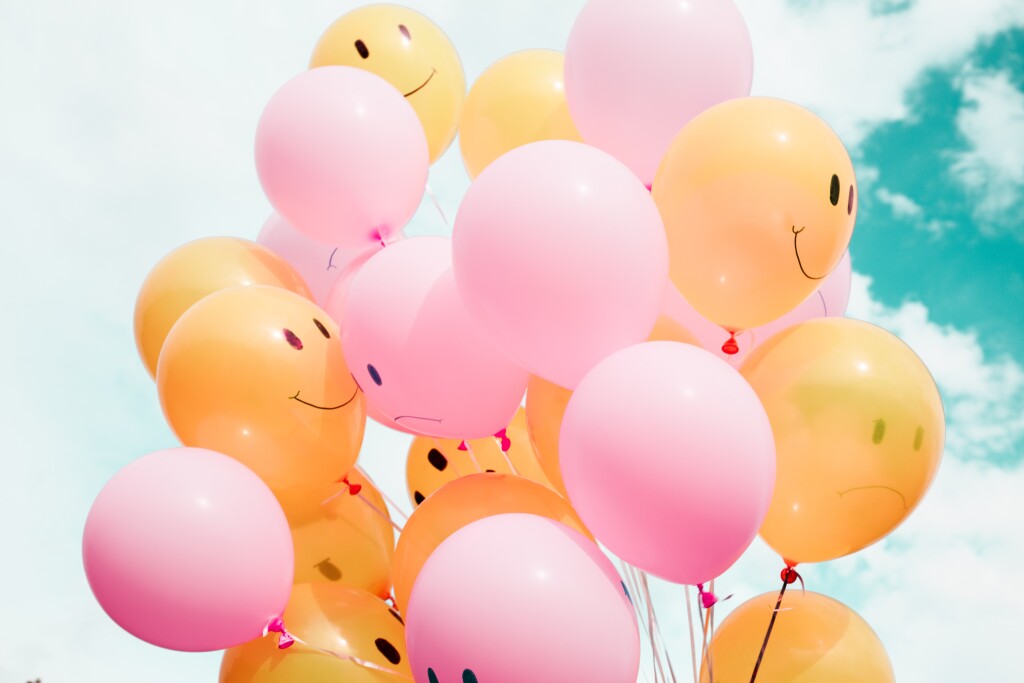
2020 is certainly going to be a memorable one – hopefully, for all the right reasons as much as the difficult ones. There are always positives to be found in even the most seemingly bleak of circumstances. It seems that enforced social distancing may have brought us all closer together in other ways – and it really is wonderful to see how much love, community spirit, creativity, gratitude and kindness has sprung from what could easily have been a 100% negative situation.
4 ways being kind can help us all
Those who have long believed in the power of kindness may have laid the groundwork, but this sudden wave of compassion stirred by our current circumstances has really gained momentum, swept through society, and presented itself in more ways than we could ever have imagined – from the colourful national show of gratitude for our key workers to the local community Acts of Kindness groups on Facebook. Why? Well, it seems that collectively we have come to understand that during a crisis, more than ever, kindness really does matter.
The universe always seems to find a way to bring us back down to earth and remind us about what’s important.
Here at The Content Wolf Magazine, we’ve been looking at the science behind kindness, the ways in which it helps us, and discovering how being kind can be as beneficial to the provider as it is to the recipient.
- Kindness boosts health
Image by https://unsplash.com/@jblesly
We all know that being kind makes us feel good, right? But there is also an abundance of longer term benefits, according to research.
Daniel Fesller, Director of UCLA’s newly founded Bedari Kindness Institute explains: “Engaging in kindness, contemplating how you can be kind to others, lowers blood pressure. It has therapeutic benefits,” he says. “There are benefits for treating depression and anxiety.”
A 2019 US study into the effects of being kind discovered not only that our level of happiness increases the more kind actions we carry out, but that the positive effects are the same whether our kindness is extended to a stranger, a close friend, or even ourselves.
Letting a car out in front of us when we’re on the road, making someone a cup of tea, smiling at a stranger, or giving someone a genuine compliment – even these simple everyday gestures give us that warm, fuzzy feeling that we might only notice for a few seconds afterwards, but can continue to work wonders for our health while we go about our day.
According to the Random Acts of Kindness Foundation, research shows that when you are kind to another person, your brain’s pleasure and reward centres light up, as if you were the recipient of the good deed—not the giver – a phenomenon known as the “helper’s high.” Being kind also helps our bodies to produce endorphins which can improve mental wellbeing, reduce inflammation and slow down the ageing process.
The Foundation says that simply witnessing acts of kindness helps improve our mood and “produces oxytocin, occasionally referred to as the ‘love hormone’ which aids in lowering blood pressure and improving our overall heart-health.”
- Kindness starts conversations
https://unsplash.com/@wildlittlethingsphoto
However it may appear on the surface, even if they seem fine, we may never truly know what someone else is experiencing. That’s why it’s so important to be kind to each other – not with grand gestures and showers of gifts, but with genuine compassion, a smile, some practical support or a listening ear.
In the words of the beautiful Caroline Flack who we tragically lost to suicide at the beginning of the year: “In a world where you can be anything, be kind.” It costs nothing and could mean everything to someone.
Every 40 seconds someone ends their life because they feel there is no other way out (a figure that has the potential to increase as the Covid-19 crisis continues, according to many experts). Showing kindness to others can remind them that they matter and don’t need to hit rock bottom before asking for help. Even if you’re not sure of the right thing to say or do, simply letting someone know that you’re there or thinking of them can be more than enough to lift their spirits, remind them that they’re not alone and boost their wellbeing.
More than 1 in 4 of us will struggle with mental illness at some point in our lives, but we humans are still disappointingly rubbish at talking about it openly with one another, which means we often suffer in silence instead of sharing our experience and potentially discovering that many other people are actually going through similar things to us. If we could create a world in which we all felt comfortable enough to talk openly about this stuff, and listen to each other with pure, non-judgemental kindness, then more people would reach out, start a conversation and keep it going.
- Kindness involves gratitude
https://unsplash.com/@artbyhybrid
We’re not just talking about saying ‘thanks’ when a person does something kind. Have you ever given someone a genuine compliment, only to have them deflect it with some self-conscious remark about how you’re basically wrong? It probably left you feeling a bit deflated and wishing you hadn’t bothered.
Expressing gratitude when someone is kind to you is a kindness in itself, allowing the sharer to feel positive about themselves, appreciated, and much more likely to do it again.
In fact, practising gratitude can be as beneficial to our mental wellbeing as practising kindness, according to research. It helps us to focus on the good things in life and really appreciate what we have in that moment. Taking time to reflect on the positives, rather than constantly looking for the next good thing or thinking “life will be better when….,” takes its principles from mindfulness and is an effective mental health booster. This is also why journaling can be so powerful.
Numerous studies have shown that practising gratitude increases our contentment, connectedness and positivity, and often leads to us paying it forward, resulting in the ripple effect (we’ve all seen the ‘R Number’ diagrams showing how many people a single Covid-19 carrier could infect without social distancing measures – imagine the same diagrams using kindness).
David Hamilton, author of The Five Side Effects of Kindness: This Book Will Make You Feel Better, Be Happier & Live Longer, explains: “When we’re kind, we inspire others to be kind. And studies show that it creates a ripple effect that spreads outwards, just as a pebble creates waves when it’s dropped into a pond. Acts of kindness ripple outwards touching others’ lives and inspiring kindness everywhere the wave goes.”
- Kindness starts with us
https://unsplash.com/@seteph
Being kind to ourselves is the most important aspect of all – and yet, it’s the one that most often gets overlooked. You may wonder why we’ve listed it last in that case. Well, we want you to remember it.
In fact, we’re going to shout it…
First and foremost, BE KIND TO YOURSELF!
You need to love and take care of your own mind and body before you can be truly ready to give wholeheartedly to others. You cannot pour from an empty cup.
Treat yourself with exactly the same kindness you would show a loved one, a neighbour, perhaps even the key workers you’ve never met. Check-in with how you are doing. Rest when you need to, and don’t be hard on yourself when you make a mistake or have an ‘off’ day. Be mindful of how you speak to yourself, and make time to practice self-care.
Kind people are our kinda people
The way we see it is there are three facets to kindness: there’s the delight and mood boost we get from being kind to others; the wellness benefits of being the recipient of kindness; and then there’s the foundational double-whammy of being kind to ourselves. All we need to do is keep the ripple moving.
So remember next time someone gives you a compliment, offers you help or extends a kindness, be sure to accept it with open arms. And then pay it forward.
For inspiration on how you can show kindness to yourself and others, check out: 5 ways to say yes to kindness.
Author deets – Find Hannah on Instagram: @limelightcopy
Main image – Photo by Edu Lauton on Unsplash




